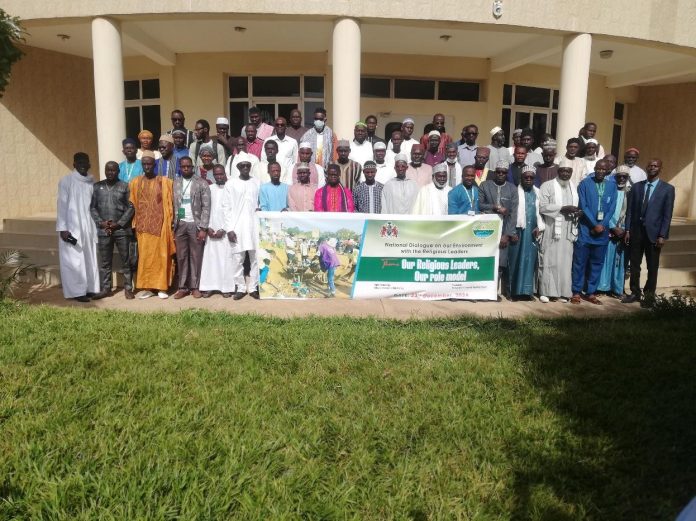By Madiba Singhateh
The National Environment Agency (NEA) on Monday, December 23, 2024, organized a one-day sensitization program for religious leaders from the Muslim and Christian communities in Bakau.
The event aimed to raise awareness of the sustainable utilization of the environment through the influential platforms of religious leaders.
Recognizing the pivotal role religious leaders play as agents of change, the NEA emphasized their capacity to influence behavior through sermons and teachings. This national dialogue sought to equip religious leaders with knowledge to disseminate critical environmental messages within their congregations.
Imam Ousainou Beye, Deputy Imam of the Kanifing Municipal Council (KMC), underscored the religious importance of cleanliness.
“Cleanliness is part of worship. Whatever we use ends up as waste, and if not properly managed, it affects the weather, soil, and even our health,” he stated.
He added that Islam emphasizes the need for clean food, water, clothing, and living spaces. Imam Beye assured the NEA that they would incorporate environmental stewardship into their sermons and discussions with their communities.
Pastor John Mendy echoed these sentiments, highlighting humanity’s responsibility to protect God’s creation. “This gathering is very important because the environment is God’s creation, and we are destroying it. In some areas, the stench of waste makes it hard to even pass through,” he noted. Pastor Mendy stressed the need to address issues such as plastic pollution, improper waste disposal, and sanitation. “We need to preach cleanliness. A clean Gambia benefits everyone,” he added.
Dr. Dawda Badjie, Director of the NEA, outlined the agency’s mission to strengthen knowledge on environmental issues and safeguard human, animal, and plant life. “As religious leaders, I request you to use your influence to play proactive roles in environmental preservation. You owe this not only to your communities but also to the living and non-living beings within them,” he remarked.
Dr. Badjie emphasized the grave consequences of neglecting the environment. “If we do not take care of the environment, the environment will take care of us. I challenge us all, individually and collectively, to commit to protecting and preserving the environment for ourselves and future generations,” he urged.
The NEA Director concluded by expressing gratitude to UPOPs, UNDP, and GEF for their support in the agency’s environmental preservation initiatives.


















